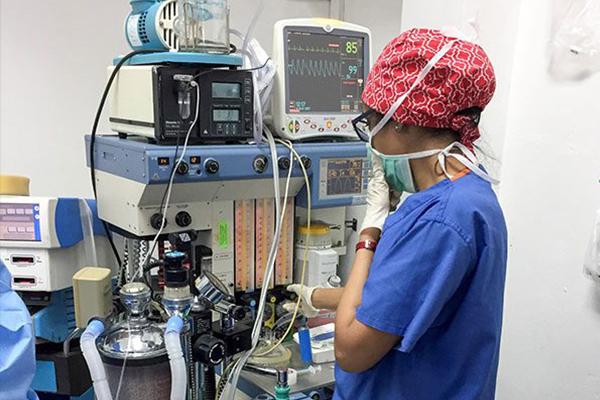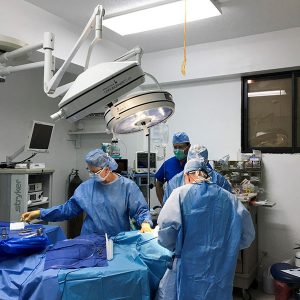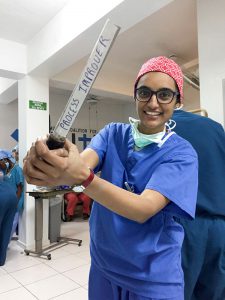Can you Provide an Example of the Learning Takeaways that Duke Anesthesiology Residents Gain from their Global Health Mission Trips?

Q: Can you provide an example of the learning takeaways that Duke Anesthesiology residents gain from their global health mission trips?
A: In March, we spent a week in Jacmel, Haiti, providing anesthesia care and helping to improve the education of Haitian doctors and nurses caring for patients in the perioperative period.

The days were long, mostly pushing 14 hours, but we worked with wonderful folks to take excellent care of very grateful people as they received the surgeries they needed, so time went by quickly. We found ourselves in a very safe anesthetic environment, with the crucial monitors (including capnography), good availability of necessary medications, and even a videolaryngoscope, but there were a few bells and whistles we have grown used to at Duke that were missing which brought us out of our bubble and challenged us to expand our thinking about delivering a safe anesthetic.
Anu learned a lot and saw pathology she’d only read about such as thyroid storm, acute hypocalcemia, and the emergency airway management of an expanding neck hematoma! She also adjusted to using an unfamiliar machine in an unfamiliar environment and relying on spontaneous respiration in our intubated patients (in order to avoid wasting expensive oxygen on driving the ventilator) during some long surgeries for huge parotid tumors, impressive goiters, and the laparoscopic (mostly) removal of the largest gall bladder either of us had ever seen. The proudest moment of Aaron’s week might have been when Anu, after a ten-hour sevoflurane anesthetic with spontaneous respiration and no end-tidal agent monitor, managed a two-minute wakeup!

There was also the opportunity for improving the education of the Haitian providers, starting with nurses and nursing students, some of whom were caring for postoperative patients for the first time in their careers, and continuing with the Haitian surgeon who will be managing the facility’s two ICU/ventilator beds when they open in June. He was especially hungry for practical advice on using arterial blood gas measurements to manage ventilator settings, a topic we were happy to talk about.
We both returned to Durham exhausted (as well as desperate for hot showers and a day without bug spray), but also remarkably refreshed. We felt that we had a made a direct difference in some folks’ lives, both the patients undergoing surgery and the nurses and doctors who ended the week a little bit better educated than they were before. And, on a personal level, we had been reminded of why we originally wanted to go into medicine. Overall, not a bad outcome for our week in Haiti.